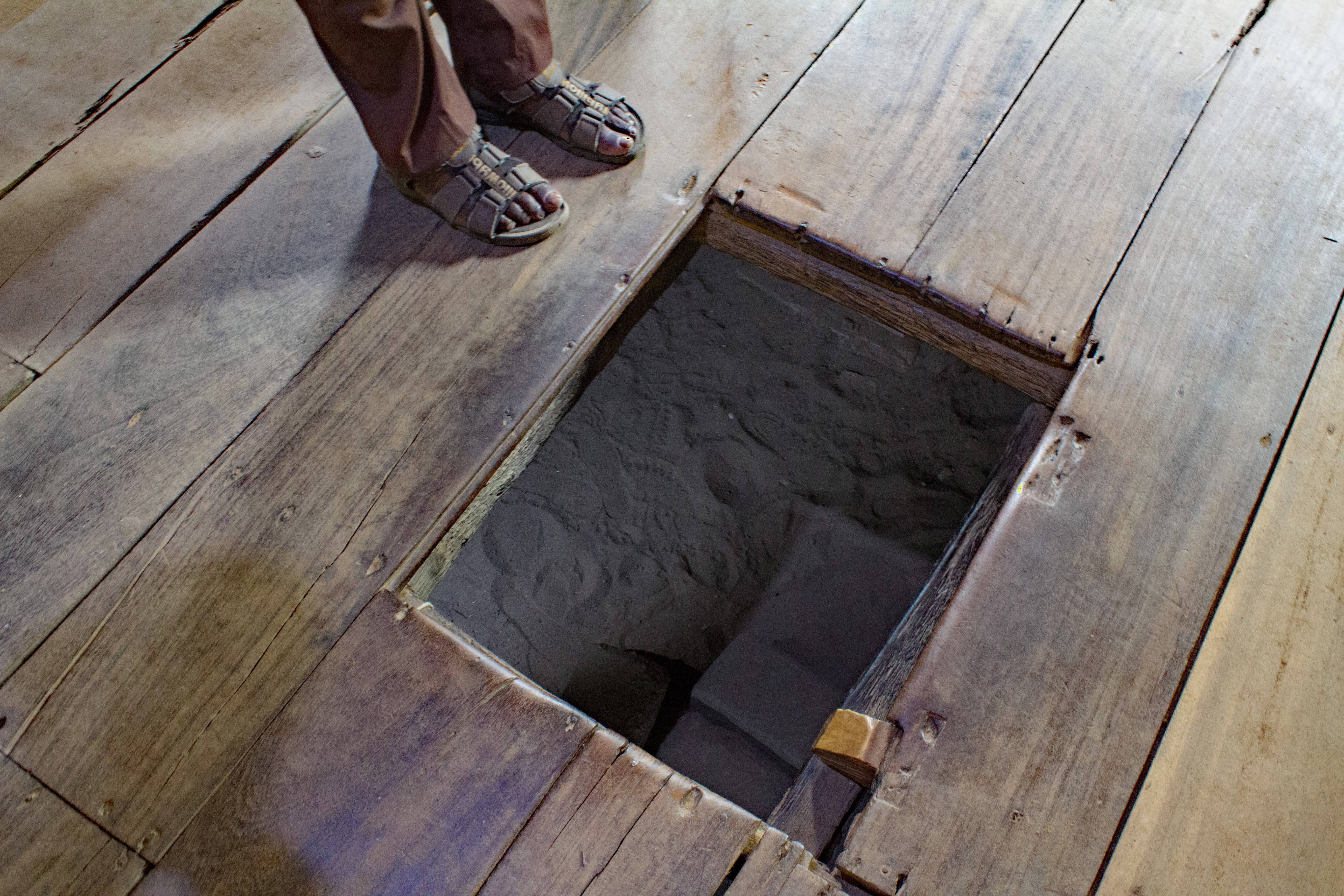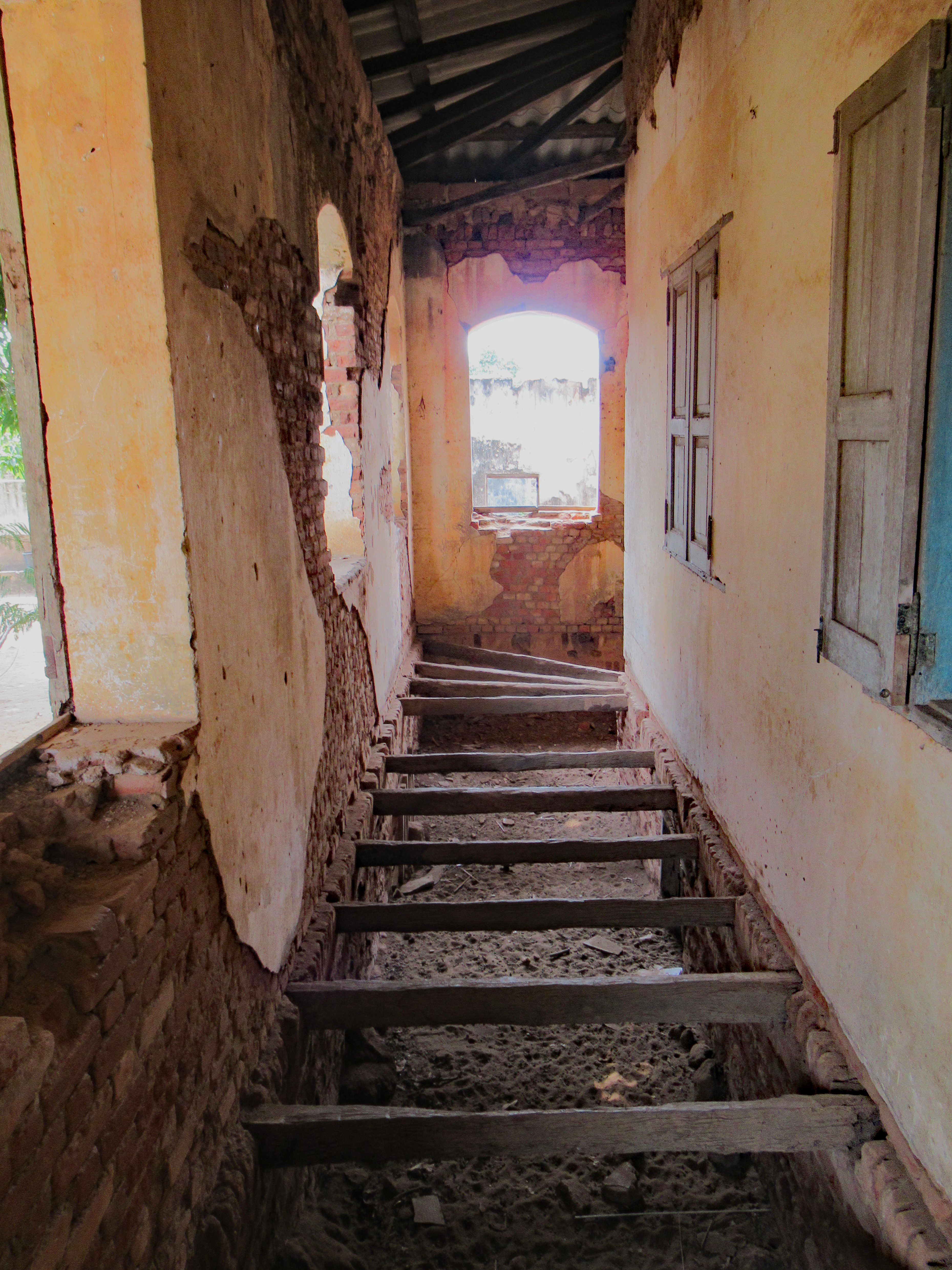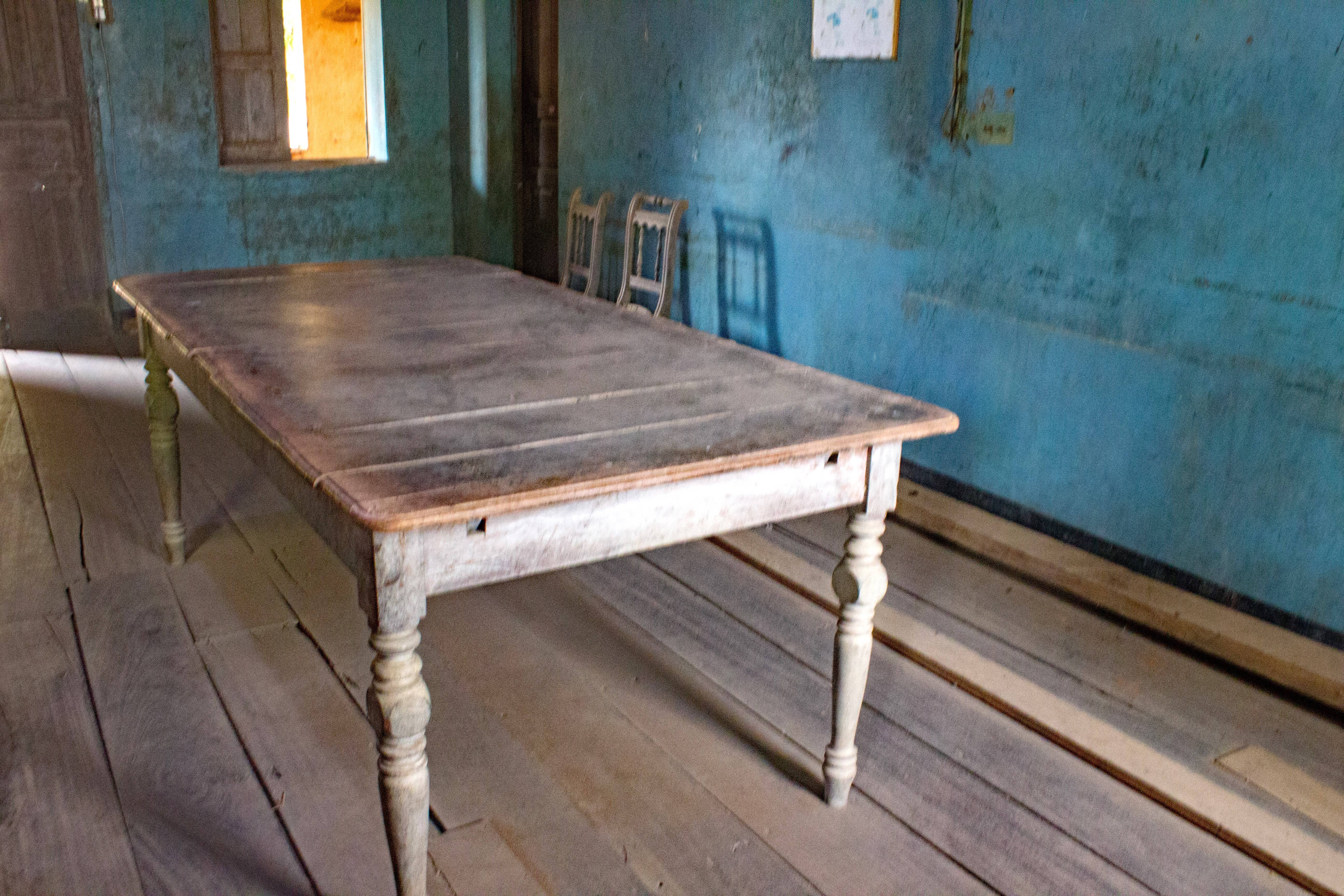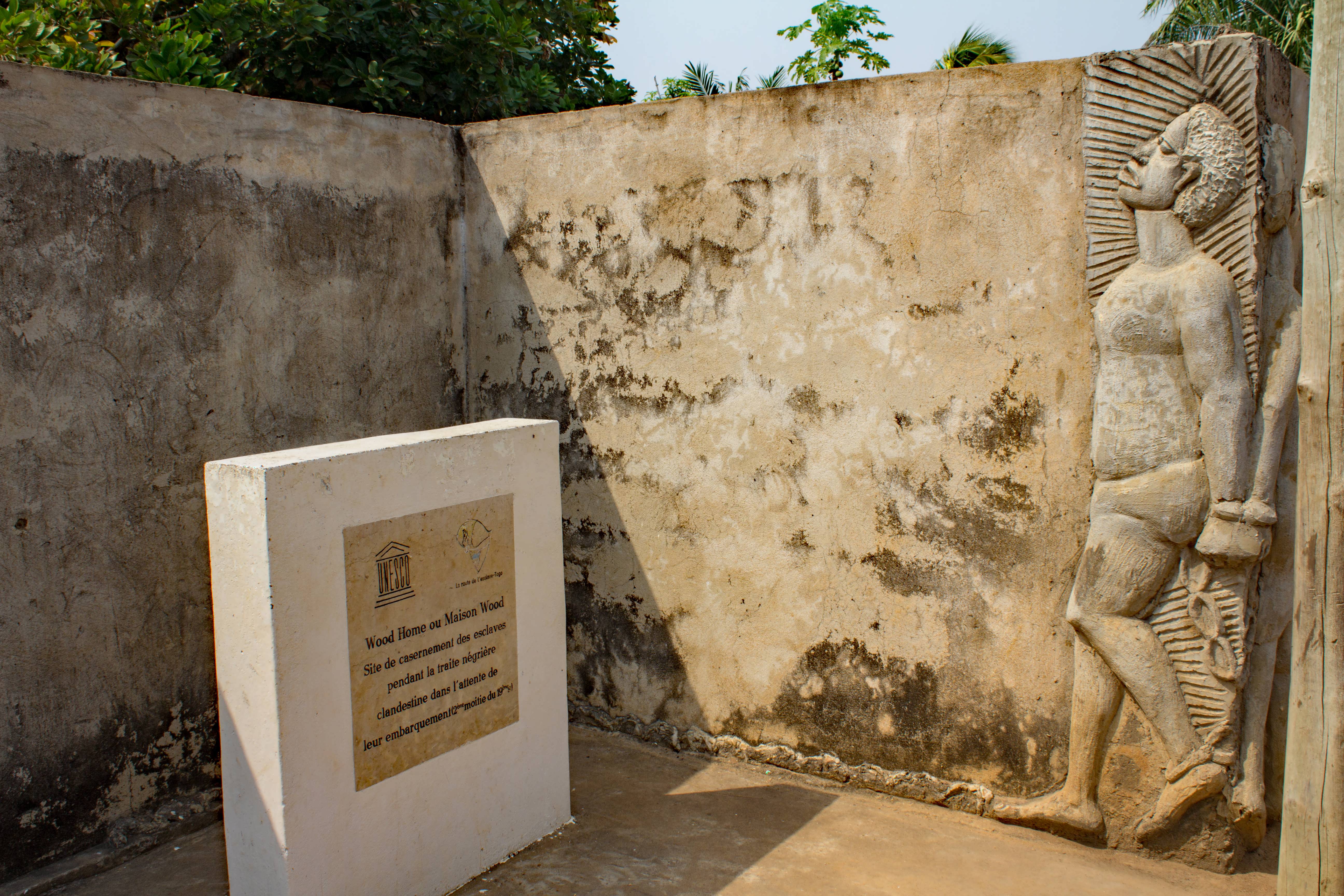Whilst staying in Togo’s capital, Lome, we visited ‘Maison des Esclaves’ or Slave House, and we sat on a wooden bench whilst a guide gave us the history of the house.
Although slavery was officially abolished in 1807, it continued illegally between 1830 and 1852 from the clandestine trading house. Built by Scottish slave trader, John Henry Wood, it was often referred to as Wood House. Its location was ideal, not only was it hidden by surrounding trees, but it was also near the lakeside town of Agbodrafo, only 150m from the Atlantic Ocean.
Having been captured in the north and east, the slaves would have stopped 4km from Agbodrafo where they had their final bath and had to walk around a well seven times, this was meant to help them forget Africa. They continued their journey on foot to the slave house, and we saw semicircular holes at ground level which they had to crawl through, and along a tunnel and into the slave cellar. This was only 1.5m high, which meant the slaves could not stand during the weeks or months they remained captive before being shipped and was said to prepare them for the cramped conditions they would endure on their journey.
Built in the Afro-Brazillian style, the living room contained the original table and had a trap door in the wooden floor which the slaves would have been fed through. We were invited to go down, but being worried we wouldn’t be able to hoist ourselves out, our noble guide volunteered. Whilst there would have been several bedrooms, only one was accessible due to the crumbling nature of the building, and we had to carefully follow the guide stepping on specific planks due to the precarious nature of the wooden floor. This bedroom also contained original furniture with a wardrobe, safe and chair.
The building has been inducted into the UNESCO-protected slave trade historical sites along the West African coast and a plaque at the entrance marks a visit by UNESCOs Director General on 14 February 2007, the 200th anniversary of the abolition of slavery. Another sign ‘Plus Jamais d’Esclavage, translates to, ‘No More Slavery’.












